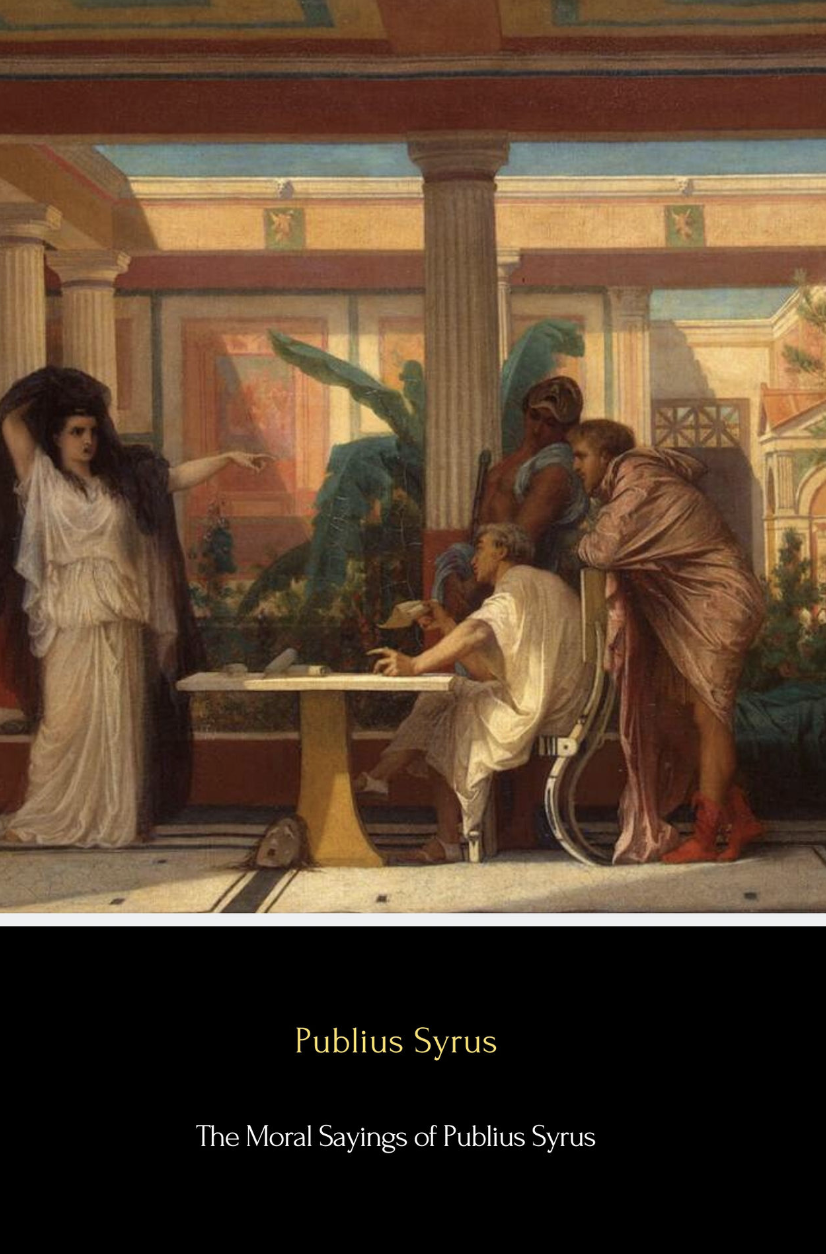The Moral Sayings of Publius Syrus - Part 2

Part 2 of The Moral Sayings of Publius Syrus:
- Powerful indeed is the empire of habit.
- Circumstances will oft force a good man to swerve from the right.
- Poverty compels men to many untried expedients.
- Men made Fortune a goddess, that misfortune might be certain.
- Man's life is a loan, not a gift.
- An honorable death is better than a disgraceful life.
- To submit to necessity involves no disgrace.
- Honors adorn the worthy; they are a stigma to the undeserving.
- Would you have a great empire? Rule over yourself.
- A truly noble nature cannot be insulted.
- The bow too tensely strung is easily broken.
- No pleasure endures unseasoned by variety.
- The judge is condemned, when the criminal is acquitted.
- Unless a man adds to his glory, he loses what he has.
- Fortune is fickle, and speedily asks back her favors.
- Dignities heaped on the undeserving, are a badge of disgrace.
- Practice is the best of all instructors.
- A miserable death is an insult from destiny.
- When you merely wish for what is disgraceful, you violate decorum.
- Never find your delight in another's misfortune.
- The prompter the refusal, the less the disappointment.
- To depend on another's nod for a livelihood is a sad destiny.
- Delay is always vexatious, but it is wisdom's opportunity.
- Seek to please many, and you seek a failure.
- A rolIing stone gathers no moss.
- Let not your benevolence extend beyond your means.
- Never promise more than you can perform.
- Nothing can be done at once hastily and prudently.
- There is nothing which the lapse of time will not either extinguish or improve.
- Do not despise the lowest steps in the ascent to greatness.
- No scar is dishonorable which is a mark of our courage.
- It is never too late to take the road to rectitude.
- He is a despicable sage whose wisdom does not profit himself.
- Every day should be passed as if it were to be our last.
- A good reputation is a good man's noblest inheritance.
- We should provide in peace what we need in war.
- What it is right to do, should be done at the right time.
- He whom public opinion has once degraded, rarely recovers his former standing.
- He gets through too late who goes too fast.
- It takes a long time to bring excellence to maturity.
- Who has the greatest possessions? He who wants least
